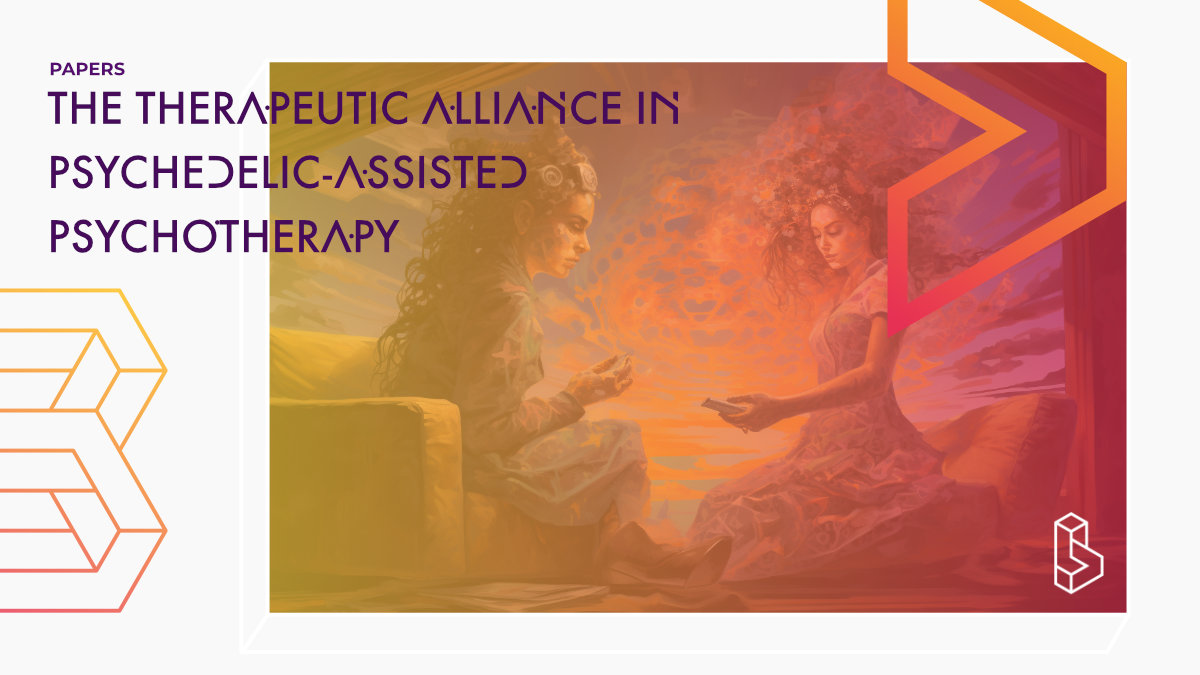This theory-building article (2023) emphasizes the importance of the therapeutic alliance, a cooperative connection between clients and providers, in psychedelic-assisted therapy (PAT). Past studies have indicated that the alliance contributes to therapy outcomes regardless of the therapy’s theoretical orientation, session count, or improvement rates. The article suggests that focusing on the therapeutic alliance could enhance the understanding and effectiveness of PAT. It advocates for including alliance measures in clinical trials and highlights the benefits of enhancing the alliance through clinician behaviours that prioritize client autonomy, listening skills, and practical concerns.
Abstract of The Therapeutic Alliance in Psychedelic-Assisted Psychotherapy
“Clinical trials support the promise of psychedelic-assisted therapy (PAT) and reveal potential mechanisms underlying efficacy. Out of necessity, initial studies of PAT have focused on feasibility and impact with special attention to acute responses to the molecules, but investigations of the psychotherapy components of PAT have lagged other work. Years of research on other forms of psychotherapy reveal that one of the most important contributors to outcome is the therapeutic alliance, a cooperative connection between clients and providers. The alliance has accounted for meaningful variance in psychotherapies independent of their theoretical orientation, number of sessions, and rates of change in improvement. Nevertheless, recent critiques suggest that previous estimates of the alliance’s impact were exaggerated because of statistical problems. This controversy only underscores the idea that the alliance could prove a valuable target for understanding mechanisms and enhancing PAT’s impact. Initial work shows promise, but only two publications address the issue directly despite decades of emphasis on the alliance in published recommendations for conducting PAT. Adding alliance measures to clinical trials would not require extensive effort or resources. Each practitioner could improve alliance relatively easily, regardless of theoretical orientation, through increases in uncontroversial clinician behaviors that focus on respect for client autonomy, listening skills, and current practical concerns. This article details support for the alliance construct, reviews relevant measurement strategies, and underscores implications for researchers and clinicians. Increased attention to the therapeutic alliance could enhance our understanding of mechanisms underlying PAT and improve outcomes, potentially decreasing human suffering more efficiently.“
Authors: Philip Kamilar-Britt, Elana B. Gordis & Mitch Earleywine
Find this paper
https://doi.org/10.1089/psymed.2023.0020
Paywall | Google Scholar | Backup | 🕊
Cite this paper (APA)
Kamilar-Britt, P., Gordis, E. B., & Earleywine, M. (2023). The therapeutic alliance in psychedelic-assisted psychotherapy: A novel target for research and interventions. Psychedelic Medicine. Advance online publication. http://doi.org/10.1089/psymed.2023.0020

